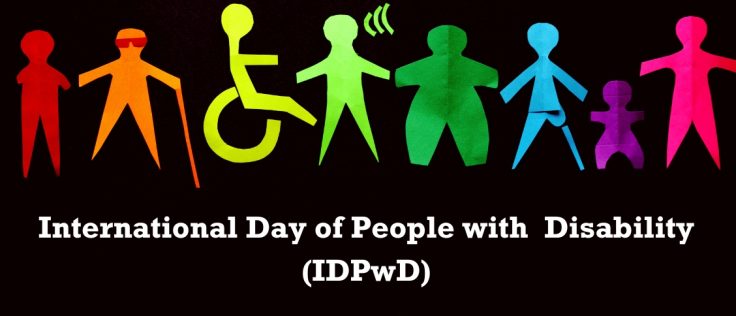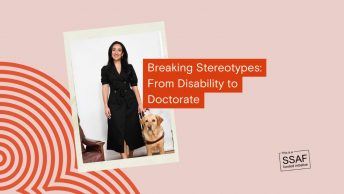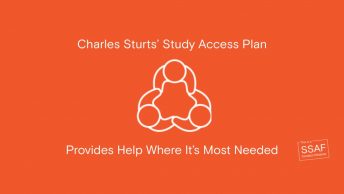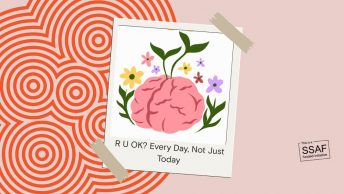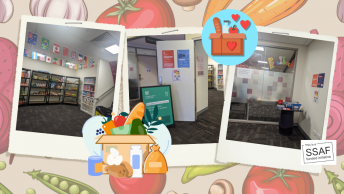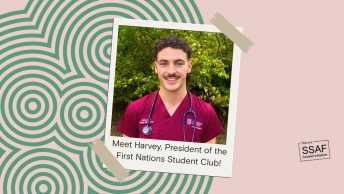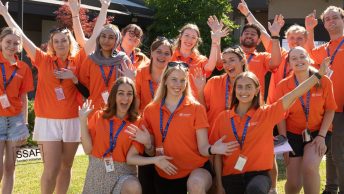Written by Janelle Hamling
This week we will be highlighting International Day of People with Disability (IDPwD).
On December 3 each year, this day aims to promote the understanding of disability and recognise the wellbeing and rights of people with disabilities.
In Australia, IDPwD works together with the government, schools, organisations, communities, businesses and individuals to promote awareness for this day.
All people have a human right to have equal access and this day strives to support inclusion, public awareness, understanding and acceptance of people with disabilities.
This year the theme for this day is ‘’Transformative solutions for inclusive development: the role of innovation in fuelling an accessible and equitable world’’.
Read below an inspiring story from Janelle Hamling where she dives into her diagnosis and how she sought out support from the Accessibility and Inclusion team to help her complete her THIRD degree from university.

Tell us about why you sought support from Accessibility and Inclusion Support?
In early primary school, I was diagnosed with specific learning difficulties with an impairment in reading.
What that means for me is that learning takes longer and is harder for me. Reading for long periods and understanding what I am reading is draining.
When I write, proofreading my work is impossible because I read what is in my head, not what is on the page.
There are lots of other issues that affect my day-to-day life, like short-term memory, but all in all, I have found ways to compensate for these.
During primary school, I was given learning support sessions in small groups, and some of the curriculum was modified, but high school was very different.
Even though the private school had my special needs documented, little practical support was offered and when, in Year 10, I summoned up the courage to ask for help, I was told that it was not needed.
I can only assume that this was because I was not a ‘behaviour issue’ and they did not understand how hard I worked to achieve the average results I got.
I was shattered.
By the time I got to do the Year 12 Queensland Core Skills test, special consideration was granted, and I was finally able to see that support was out there and with that support, a more even playing field was created.
I have almost completed my third degree at university and have worked professionally for 20 years.
For each degree, before the course started, I was sure to speak with the Disability Support Team to speak honestly with them about my difficulties and to seek support.
I have received slightly different support each time as courses and availability of support changed.
For my first degree, an on-campus Bachelor of Education (specialising in Early Childhood), a scribe and extra time for exams were vital and considerably reduced my anxiety levels because some of the time pressure was taken off.

I knew, with a scribe, that my disability would not betray the expression of the knowledge that I had worked so hard to gain.
My second degree, a post-graduate Certificate in Educational Leadership, was an intensive course over two years.
During this course, the lecturers provided notes before the sessions so I could focus on what they were saying and the discussion in the room rather than notetaking.
My third degree is an online Master of Education (Teacher Librarianship). As this is an online course, assistive technologies were one of the keys to my success.
What support did you receive?
More specifically, for my last degree, the recommended study adjustments included the following:
- Extension of time to complete assignments during the session.
- Software and equipment.
- Transcription of subject materials to an accessible format.
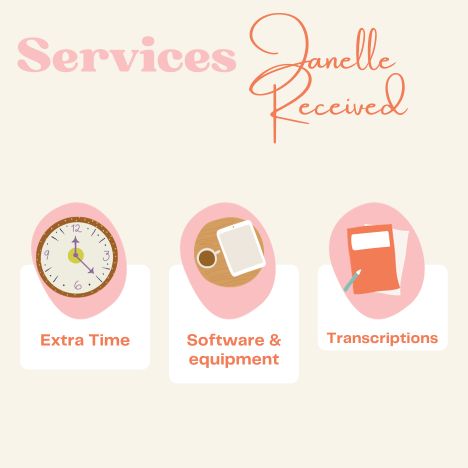
Of the adjustments recommended and provided, which of those were the most impactful to you being successful with your study?
Easily, the most impactful adjustment was providing the assistive software, ‘Read&Write’.
I used this every time I studied to read lecture notes, so my concentration was on understanding the content and annotating the work or readings.
The PDF reader was also beneficial with readings and transcripts of subject material, including textbooks given to me in accessible forms to access on ‘Read&Write’.
‘Read&Write’ also has a fantastic feature. If you highlight different topics in different colours from the readings or notes, a function will separate the various topics for you, putting similar information together.
It also has a speech to text function, but I found my ideas came more easily when I had to slow down and type them, even if the editing process was difficult.
Whilst not provided only for students with disabilities, ‘Studiosity’ is an excellent tool for all students.
After I finish any assignment, I leave time to submit it to Studiosity.
They are real people who provide feedback on your assignments in structure, choice of language, spelling and grammar and the use of sources.
This is a free service, and the aim is to return the assignment to students within 24 hours, but from my experience, it was about 6 hours or less.
What would your advice be to other students considering seeking support but unsure whether to do so?
My advice to other students considering seeking support from Accessibility and Inclusion support is to ask.
I know how it feels to be turned away when legitimately seeking support because a learning disability is invisible, it happened to me in Year 10.
My experience throughout my adult life has not been at all like that.
The team at Accessibility and Inclusion Support have thoughtfully listened, provided options that I didn’t know existed and allowed me to learn so that I can go on to empower young children, particularly those with unseen disabilities, to see that they can do it too.
The Accessibility and Inclusion team’s guidance and support are invaluable, and they do it with a focus on the students’ best interests.
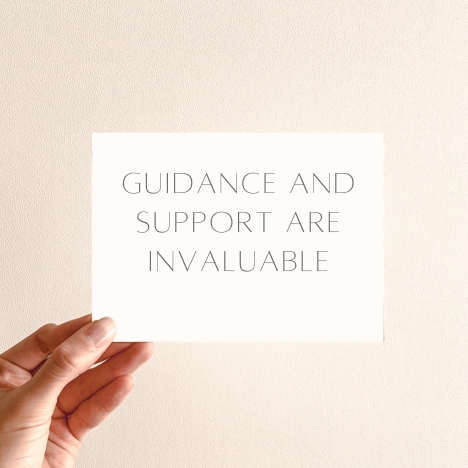
A final note
A big thank you to Janelle for sharing your story. We wish you all the best for completing your third degree.
We hope this has encouraged you all to spread awareness for IDPwD and share your story with friends and family.
If you have a story you would like to share with Charlie, contact charlie@csu.edu.au
Useful Links
Want to know more about Accessibility and Inclusion support?
Click here.


